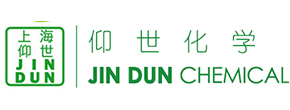124
Understanding Nonionic Flake Softeners and Their Role in Textile Production
2023/4/19
Introduction:
Nonionic flake softeners are a type of textile auxiliary agent that is used to provide softness and smoothness to fabrics. In this article, we will discuss what nonionic flake softeners are, how they work, and their benefits and uses in textile production.
Conclusion:
Nonionic flake softeners are an important textile auxiliary agent that can provide several benefits to fabric production. They help to improve the comfort and durability of fabrics, reduce static electricity, and enhance their appearance. Nonionic flake softeners are particularly useful in applications where compatibility with a wide range of fabric types is important. Understanding the benefits and uses of nonionic flake softeners is essential for anyone involved in textile production or textile design.
Nonionic flake softeners are a type of textile auxiliary agent that is used to provide softness and smoothness to fabrics. In this article, we will discuss what nonionic flake softeners are, how they work, and their benefits and uses in textile production.
What are Nonionic Flake Softeners?
Nonionic flake softeners are a type of textile auxiliary agent that is added to fabrics during the production process. These softeners are usually composed of a mixture of fatty acid esters, ethoxylated alcohols, and fatty amines. Unlike cationic and anionic softeners, nonionic flake softeners do not carry any electrical charge, making them more compatible with a wider range of fabric types.How do Nonionic Flake Softeners Work?
Nonionic flake softeners work by reducing friction between fibers, which results in a softer and smoother fabric. These softeners are absorbed onto the surface of the fabric and form a lubricating layer that reduces fiber-to-fiber friction. Nonionic flake softeners can also help to reduce static electricity, which can be a problem with synthetic fabrics.Benefits and Uses of Nonionic Flake Softeners:
There are several benefits and uses of nonionic flake softeners in textile production, including:- Improved Comfort: Nonionic flake softeners provide a soft and smooth feel to fabrics, making them more comfortable to wear.
- Reduced Static: The lubricating layer provided by nonionic flake softeners helps to reduce static electricity in synthetic fabrics, which can be a significant issue in certain environments.
- Increased Durability: Nonionic flake softeners can help to increase the durability of fabrics, as the lubricating layer helps to reduce friction between fibers, which can lead to less wear and tear over time.
- Enhanced Appearance: Fabrics treated with nonionic flake softeners have a smoother appearance and feel, making them more visually appealing.
- Wide Range of Applications: Nonionic flake softeners can be used in a variety of textile production applications, including clothing, bedding, and home textiles.
Conclusion:
Nonionic flake softeners are an important textile auxiliary agent that can provide several benefits to fabric production. They help to improve the comfort and durability of fabrics, reduce static electricity, and enhance their appearance. Nonionic flake softeners are particularly useful in applications where compatibility with a wide range of fabric types is important. Understanding the benefits and uses of nonionic flake softeners is essential for anyone involved in textile production or textile design.

